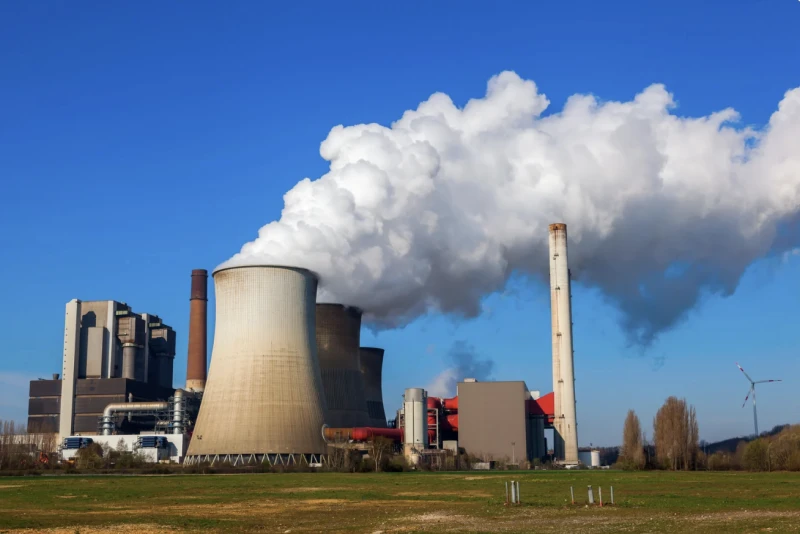Fossil fuels are embedded in our food chain. What can be changed to reduce the environmental trade-offs
Fossil fuels are embedded in our food chain. What can be changed to reduce the environmental trade-offs
Errol Schweizer | Forbes | July 18, 2025
XLinkedInFacebookRedditBlueskyThreads


A new report from renowned international thinktank IPES-Food, Fuel To Fork, documents how fossil fuels are the lifeblood of the food industry. From how food is grown, processed, and packaged, to how it’s refrigerated and delivered, nearly every step is fossil fuel-based.
…
Fossil fuels are deeply embedded in every part of the food chain – accounting for at least 15% of total fossil fuel use globally – and their use in food systems is accelerating.
Follow the latest news and policy debates on sustainable agriculture, biomedicine, and other ‘disruptive’ innovations. Subscribe to our newsletter.
Key findings from the report include:
- 40% of all global petrochemicals are consumed by food systems, mainly in the form of synthetic fertilizers and plastic packaging for food and beverages.
- One-third of all petrochemicals go toward producing synthetic nitrogen fertilizers, making them the single biggest fossil fuel consumer in agriculture.
What the report recommends to get fossil fuels out of food systems:
- Rein in corporate power and democratize food systems governance. The first thing to do is break up the big food processors and retailers. None of the changes will matter otherwise;
- Advance a just energy transition that expands and equitably distributes renewable energy;
This is an excerpt. Read the original post here
XLinkedInFacebookRedditBlueskyThreads

 | Videos | More... |

Video: Nuclear energy will destroy us? Global warming is an existential threat? Chemicals are massacring bees? Donate to the Green Industrial Complex!
 | Bees & Pollinators | More... |

GLP podcast: Science journalism is a mess. Here’s how to fix it

Mosquito massacre: Can we safely tackle malaria with a CRISPR gene drive?

Are we facing an ‘Insect Apocalypse’ caused by ‘intensive, industrial’ farming and agricultural chemicals? The media say yes; Science says ‘no’
 | Infographics | More... |

Infographic: Global regulatory and health research agencies on whether glyphosate causes cancer
Does glyphosate—the world's most heavily-used herbicide—pose serious harm to humans? Is it carcinogenic? Those issues are of both legal and ...
 | GMO FAQs | More... |

Why is there controversy over GMO foods but not GMO drugs?
Genetic Literacy Project

How are GMOs labeled around the world?
Genetic Literacy Project

How does genetic engineering differ from conventional breeding?
Genetic Literacy Project
 | GLP Profiles | More... |

Alex Jones: Right-wing conspiracy theorist stokes fear of GMOs, pesticides to sell ‘health supplements’




 A single high dose of LSD can ease anxiety and depression for months
A single high dose of LSD can ease anxiety and depression for months CRISPR pork: U.S. approves first gene-edited pigs for consumption
CRISPR pork: U.S. approves first gene-edited pigs for consumption From plastic coasters to human hearts: Inside the race to print the human body
From plastic coasters to human hearts: Inside the race to print the human body ‘SuperAgers’: Why some people have the brains and memory capacity of people decades younger
‘SuperAgers’: Why some people have the brains and memory capacity of people decades younger  Baby food panic, brought to you by trial lawyers hoping to prosecute by press release
Baby food panic, brought to you by trial lawyers hoping to prosecute by press release Viewpoint: Life and death decisions: RFK, Jr.’s shady FDA “expert panels” operate in secret with no transcripts or conflict of interest reviews
Viewpoint: Life and death decisions: RFK, Jr.’s shady FDA “expert panels” operate in secret with no transcripts or conflict of interest reviews From ‘Frankenfood’ to superfood: Can the purple tomato overcome GMO myths to win over consumers?
From ‘Frankenfood’ to superfood: Can the purple tomato overcome GMO myths to win over consumers? When farmers deny science: The hypocrisy hurting agriculture’s credibility
When farmers deny science: The hypocrisy hurting agriculture’s credibility
